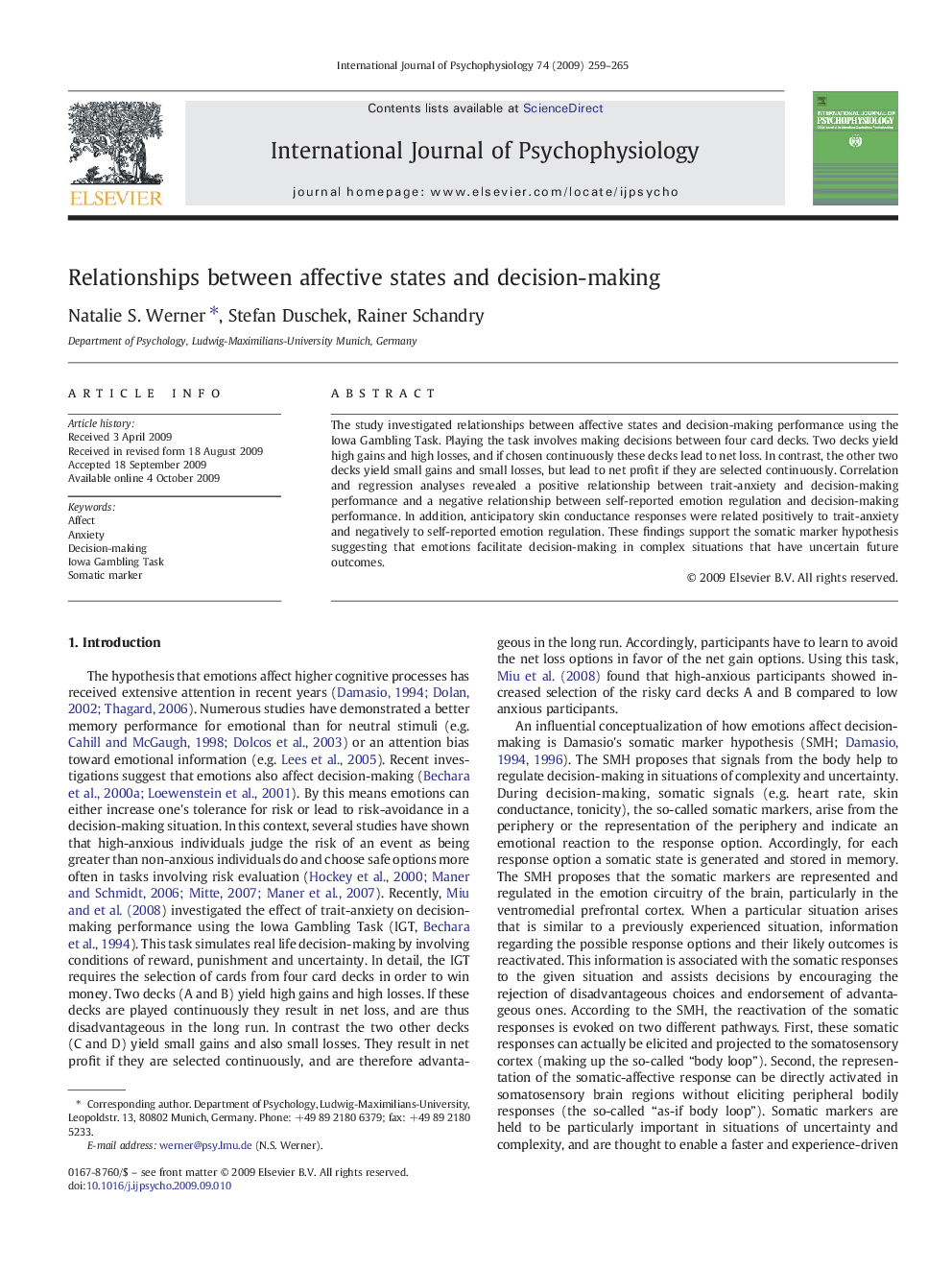| Article ID | Journal | Published Year | Pages | File Type |
|---|---|---|---|---|
| 930880 | International Journal of Psychophysiology | 2009 | 7 Pages |
The study investigated relationships between affective states and decision-making performance using the Iowa Gambling Task. Playing the task involves making decisions between four card decks. Two decks yield high gains and high losses, and if chosen continuously these decks lead to net loss. In contrast, the other two decks yield small gains and small losses, but lead to net profit if they are selected continuously. Correlation and regression analyses revealed a positive relationship between trait-anxiety and decision-making performance and a negative relationship between self-reported emotion regulation and decision-making performance. In addition, anticipatory skin conductance responses were related positively to trait-anxiety and negatively to self-reported emotion regulation. These findings support the somatic marker hypothesis suggesting that emotions facilitate decision-making in complex situations that have uncertain future outcomes.
